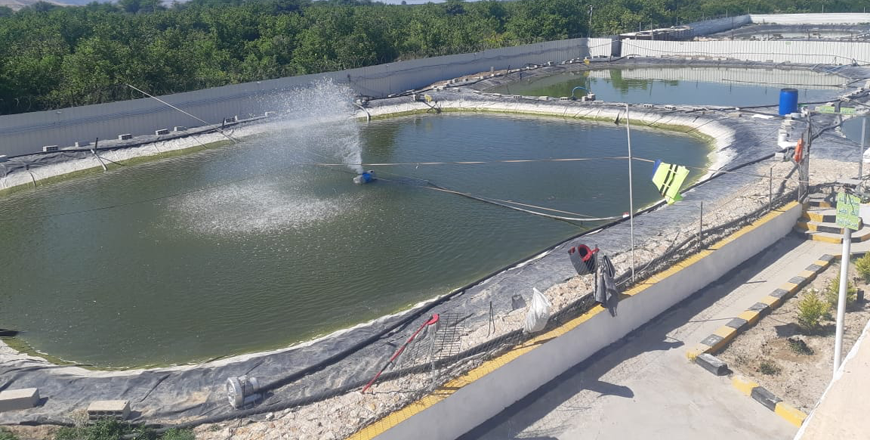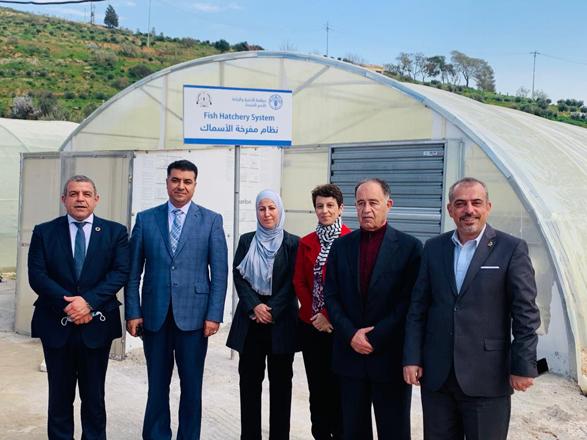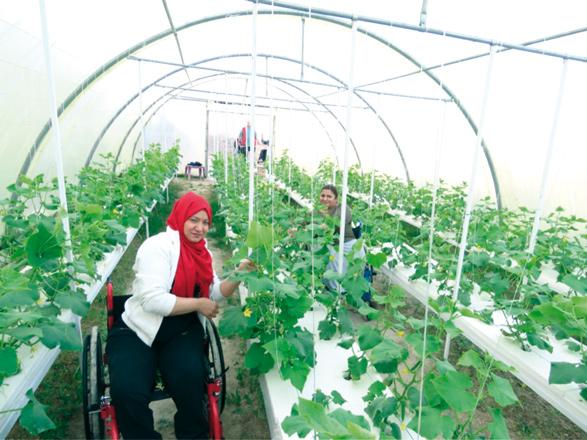You are here
Aquaponics farm project to increase water efficiency, create jobs in Jordan Valley
By Mays Ibrahim Mustafa - Sep 10,2023 - Last updated at Sep 10,2023

A project initiated by the Jordan Agricultural Engineers Association is working to establish an aquaponics farm in the Jordan Valley, which is expected to increase water efficiency and create jobs (Photo courtesy of Ahmad Hammouri)
AMMAN — A project initiated by the Jordan Agricultural Engineers Association is working to establish an aquaponics farm in the Jordan Valley, which is expected to increase water efficiency and create jobs.
Director of the Directorate of Agriculture in the Jordan Valley, Raed Sharman, told The Jordan Times that the Ministry of Agriculture inked an agreement with the association last week to allocate 10 dunums of land for the project.
The UN Food and Agriculture Organization (FAO) is also contributing to the project with a $75,000 grant, President of the Agricultural Engineers Association Ahmad Hammouri told The Jordan Times.
According to Hammouri, the project is expected to create jobs for over 15 agriculture engineers and 20 indirect jobs for workers from other sectors.
The farm’s production volume will contribute to enhancing the self-sufficiency of certain types of fish and plants, in addition to creating “much needed” stable sources of income in the Jordan Valley, he said.
Aquaponics is a “water efficient and sustainable” form of farming that enables year round farming in an indoor, controlled environment that allows farmers to bypass seasonal limitations, Hammouri explained.
The concept is based on a circular system in which the nutrient-rich water produced by farmed fish is fed to hydroponically grown plants. This results in generating two products at once in addition to reducing waste and water costs, he said.
The project is expected to begin by the start of 2024, according to Hammouri.
The Jordan Times also spoke with Raed Balawneh, an agricultural engineer who works in aquaculture in The Jordan Valley.
Balawneh explained that aside from the high costs of fish feed, adapting to seasonal changes is one of the main challenges faced by farmers in the field.
“It’s essential for fish health to maintain the quality of water throughout all stages of production. During heatwaves, farmers have to change 50 per cent of the water in the tanks every day,” he said.
The most common types of fish farmed in the Jordan Valley are tilapia and the common carp fish, according to Balawneh.
Related Articles
AMMAN — The Representative of the Food and Agriculture Organisation of the United Nations (FAO) in Jordan Nabil Assaf, Agriculture Minister
AMMAN — The Food and Agriculture Organisation of the United Nations (FAO) and the Ministry of Agriculture (MoA) on Monday launched a pioneer
AMMAN — The Food and Agriculture Organisation of the United Nations (FAO) has signed an agreement with the Ministry of Agriculture to provid













